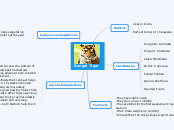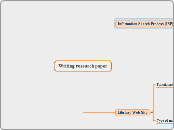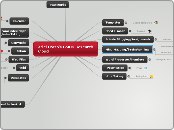Nucleic Acid Research database
Group Members
New Yen Khim
Nadia Hakim binti Nasseri
Nor Afrah binti Ahmad Tarmezi
Siti Maysarah binti Abd Rahim
Nurul Syahirah binti Mohd Nasir
Databases used in assignments
RCSB PDB
Providing an information about the 3D structures of large biological molecules, including proteins and nucleic acids
http://www.rcsb.org/pdb/static.do?p=general_information/about_pdb/index.html
Provides a catalogue of protein family interactions, calculated from known structures
www.ipfam.org
Provide the scientific community with a comprehensive, high-quality and freely accessible resource of protein sequence and functional information
http://www.uniprot.org/
A database for understanding high level functions of molecular biology, especially datasets generated from genome sequencing and experimental data
www.genome.jp/kegg/
The National Center for Biotechnology Information providing access to biomedical and genomic informartion
http://www.ncbi.nlm.nih.gov/
Structure-Function Linkage Database classifies enzymes related to specific sequence-structures features to their chemical capabilities
sfld.rbvi.ucsf.edu/django/web/about/
Human Gene Mutation Database; unique resource providing data on human inherited disease mutation to genetics and genomic research
http://www.biobase-international.com/product/hgmd
BRENDA
Collection of enzyme functional data, which are classified according to Enzyme Commission list
www.brenda-enzymes.info
Why these databases are useful in describing our chosen protein
PDB
can study the structures of biological macromolecules and their relationships to sequence, function, and disease through different resources and tools
iPfam
enable us to look at the conservation of domain–domain interactions between different PDB entries lipase
provide the scientific community with a comprehensive, high-quality and freely accessible resource of lipase protein sequence and functional information
KEGG
presents a comprehensive set of metabolic pathway charts, both general and specific, for each of the sequenced genomes
NCBI
view and search an organism's complete genome, display chromosome maps, and zoom into progressively greater levels of detail, down to the sequence data for a region of interest
SFLD
get know how conserved residues map to catalysis of partial reactions or other shared functions at a finer level of detail than overall reactions
HGMD
can study the mutational mechanisms in human genes
Brenda
we can know about biochemical and molecular information on classification and nomenclature, reaction and specificity, functional parameters, occurrence, lipase structure, application, engineering, stability, disease, isolation and preparation, links and literature references
Organization of databases and its major grouping
http://www.oxfordjournals.org/nar/database/subcat/3/10
Other Molecular Biology Databases
Subtopic
GeMInA
BioNumbers
BioModels
Proteomics Resources
Microarray Data and other Gene Expression Databases
Human Genes and Diseases
Human and other Vertebrate Genomes
Metabolic and Signaling Pathways
Genomics Databases (non-vertebrate)
Structure Databases
Protein sequence databases
Databases of individual protein families
Nuclear Receptor Resource
Death Domain database
ChromDB
Aminoacyl-tRNA synthetase database
Protein domain databases; protein classification
DomIns - Database of Domain Insertions
ADDA - A Domain Database
3DSwap: Database of Proteins involved in 3D domain Swapping
Protein properties
PFD - Protein Folding Database
AAindex
BindingDB
General sequence databases
UniProt
PIR - Protein Information Resource
PA-GOSUB
NCBI Protein database
MIPS resources
EXProt
COMBREX
CharProtDB
RNA sequence databases
Nucleotide Sequence Databases









